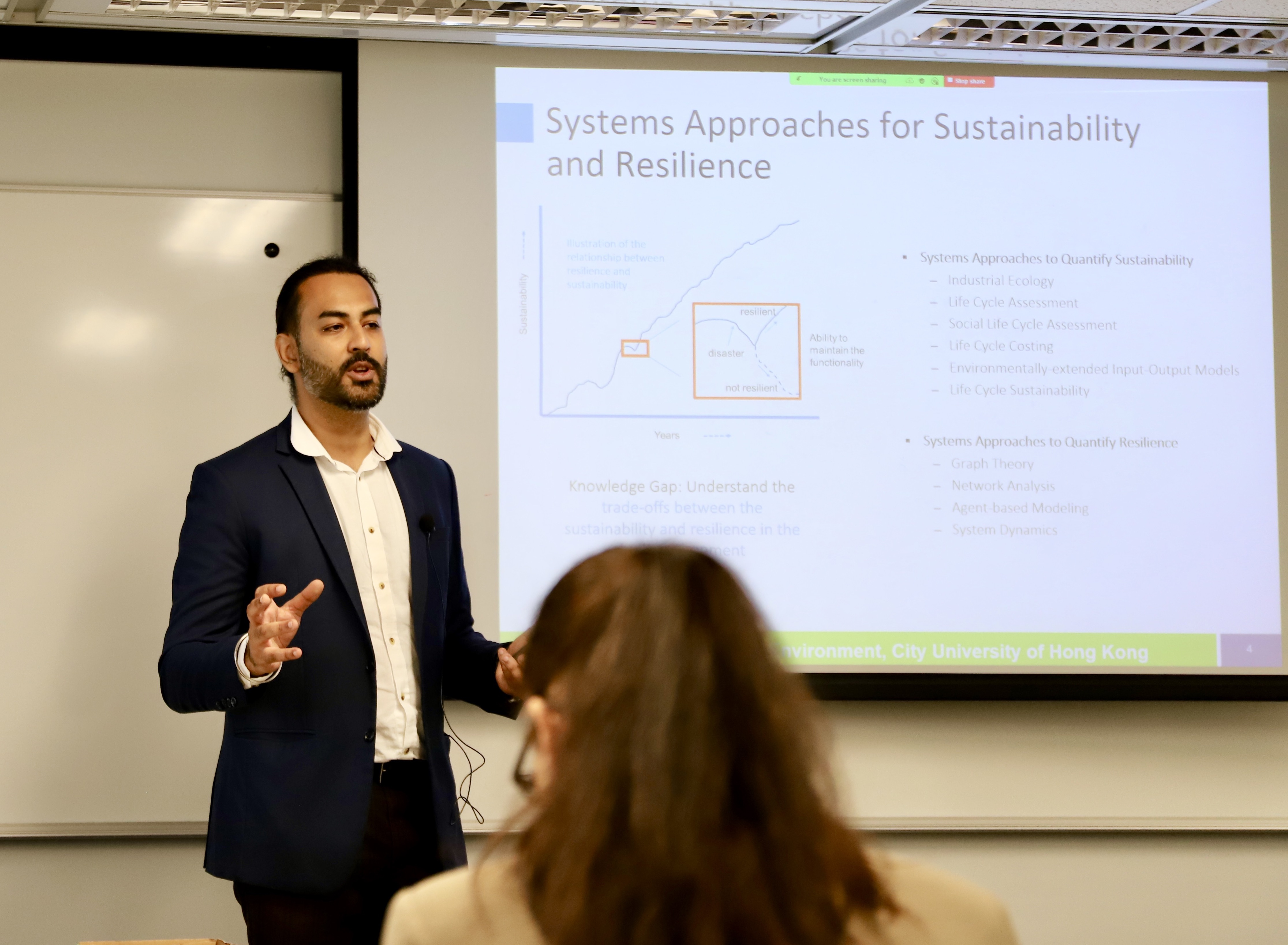Past Event
Enhancing Resilience and Sustainability of Urban Infrastructure through LCA

As climate change intensifies, cities face increasing pressure to design infrastructure systems that are not only sustainable in the long term but also resilient to short-term disruptions such as those triggered by extreme weather events. In a seminar talk at HKUST, Prof. Shauhrat S. Chopra, Associate Professor at City University of Hong Kong’s School of Energy and Environment, introduced a multi-dimensional resilience assessment framework, the Resilience Cycle, developed to evaluate and improve the ability of urban systems like Hong Kong’s multimodal public transport network to withstand disruptions.
Central to his approach is the use of Life Cycle Assessment (LCA) as a decision-support tool for infrastructure planning. By quantifying environmental impacts across the life cycle of systems and technologies, LCA enables more informed investment choices and helps balance short-term resilience with long-term climate mitigation targets. Prof. Chopra also discussed the need for dynamic LCA approaches when evaluating emerging technologies like hydrogen energy. Given the uncertainties and evolving understanding of such solutions, continuous reassessment through collaboration with technology developers is essential.
The talk showcased how integrating LCA, network analysis, and Geographic Information Systems tools can help cities like Hong Kong make data-driven, adaptive decisions to strengthen infrastructure resilience, and thereby offer valuable insights for both policymakers and researchers working on sustainable urban development.